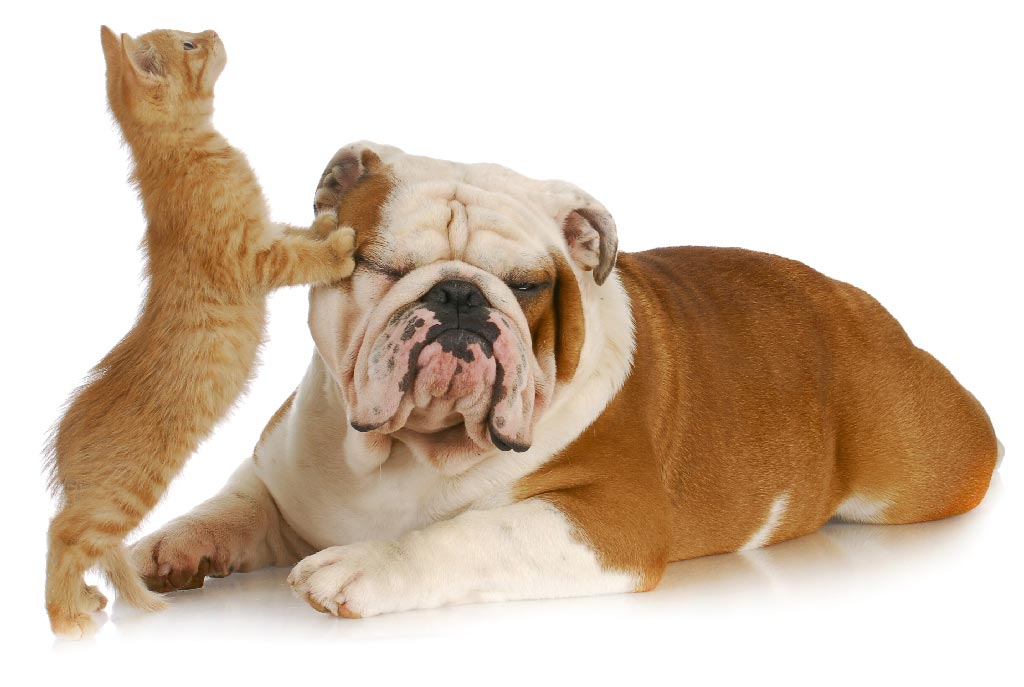
Food, fresh water, shelter and vaccinations are just the basics in raising a fur baby. Avoiding untimely irritations, infections and ingestions requires diligence, time and a sustained commitment to your dog or cat. However, dedicating yourself to these tasks will strengthen the human-animal bond … and make others happy, too.
 The Purrfect Vacation
The Purrfect Vacation
It can be fun to travel with your furry friends, but planning is essential. Veterinarian Jana Bone of Woodland West Animal Hospial in Tulsa recommends rehearsing before a trip.
“Traveling with pets can be stressful for both owners and the pets,” she says. “The first recommendation for traveling is to practice. Take your pet for a short ride often to see how they are going to respond in a car. Sometimes a mild sedative can help decrease the anxiety with traveling.”
(Bone does not specify whether the sedative is for the pet or the parent.)
The second tip, she says, is planning. This is especially crucial for airline travel. Check the airline’s regulations well in advance. And regardless of what transportation mode you use, Bone recommends obtaining a certificate of health whenever taking your pet across state lines.
And if you wouldn’t want to travel a certain way, try not to make your pet travel that way.
Pet Parenting
Almost everyone who gets a pet does so with the best of intentions. Intellectually, we may know that we are accountable for this animal’s life; in reality, that responsibility can be more than some are ready to deal with. Before adopting or buying a pet, consider long and hard the implications of becoming a fur-parent.
“While the exact responsibilities will vary by type of pet, in general new pet owners should understand that, first and foremost, a pet is a responsibility,” says Dr. John Link of Deer Creek Animal Hospital in Harrah.
An effective pet owner means going beyond the basics.
“General responsibilities include feeding, watering and providing adequate shelter, but they do not end there,” he says. “Like children, our pets must be provided adequate stimulation and socialization or behavioral problems will develop. This can include play with other pets, but should also include adequate contact with their owner and other humans. Of utmost importance is medical treatment,”
Vaccinations are vital.
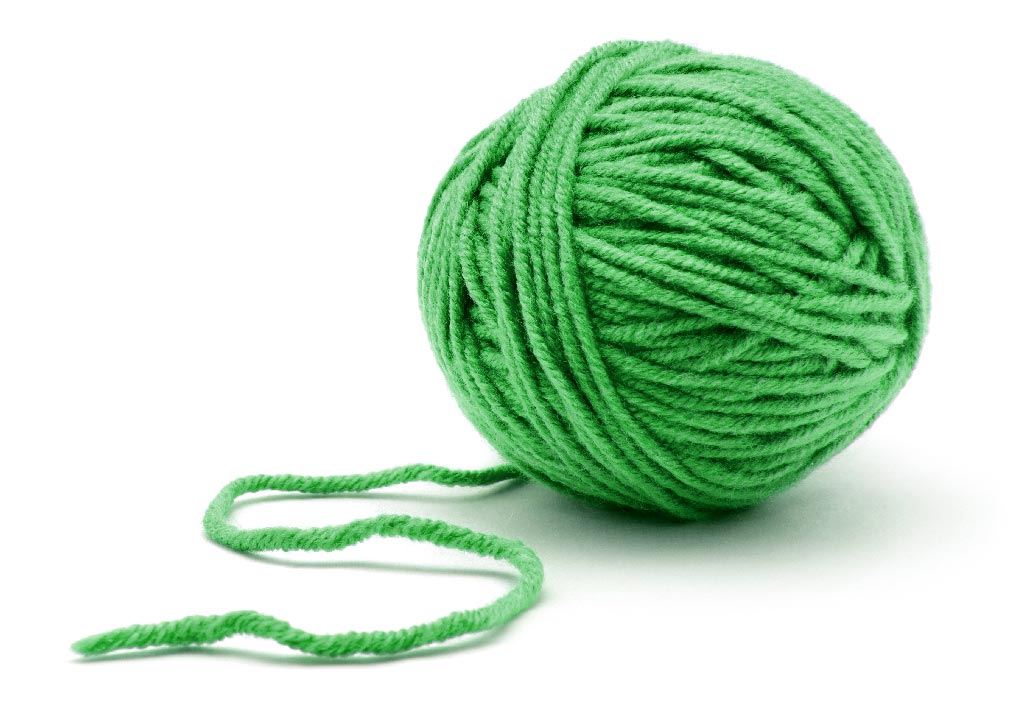 “The ability to vaccinate and protect against common disease is one of the greatest, if not the greatest single advancement, in modern medicine over the last 200 years,” Link says. “Vaccinations protect our pets against many of the most serious and easily acquired diseases that affect their particular species, and, without them, many pets would suffer unnecessarily.”
“The ability to vaccinate and protect against common disease is one of the greatest, if not the greatest single advancement, in modern medicine over the last 200 years,” Link says. “Vaccinations protect our pets against many of the most serious and easily acquired diseases that affect their particular species, and, without them, many pets would suffer unnecessarily.”
Unless you plan to deliberately breed your animals, spay or neuter them. Spay Oklahoma and the SPCA, both in north Tulsa, the Central Oklahoma Humane Society in Oklahoma City and other organizations have low-cost spay/neuter clinics, and many vets and other organizations hold special events to get the job done safely and cheaply.
“Spaying or neutering is important to prevent overpopulation within our community,” Bone says. “These procedures also prevent health changes that can be life threatening and costly.”
Additional tips from Link and Bone include conscientious feeding and exercising (be familiar with appropriate amounts for your pet, and do not exercise animals immediately after feeding them); house-training for dogs; and regular tummy rubs (but be careful with cats). If you go running with your dog, check with your vet to make sure your speed and gait over a long distance are beneficial, not detrimental, to the particular breed. All these tasks are worth the effort.
“The greatest reward to incorporating a pet into your family is their unconditional love,” Bone says. “No matter the day’s events or the discipline needed, they are always loving in return.”
 Pet Proofing
Pet Proofing
All those pictures of kittens with balls of yarn are adorable, and cats may love to attack their stringy enemies, but a lot of folks don’t realize that consuming string can kill your pet. Some of the most dangerous household and yard items are the ones we least suspect.
Veterinarian Jana Bone recommends caution regarding pets who like to consume rocks, sticks or mulch. Cats and dogs are vulnerable to any type of herbicide or pesticide; reactions may range from irritating to deadly. Also, be sure to secure your yard and make sure your pets are microchipped so they can be safely returned to you if they make a break for it.
Cat Cuddlers vs. Dog Devotees
Some say that if you are outgoing, loyal and a bit slow-witted, you probably love dogs. If you are fussy, aloof, single or a librarian, you might be better suited for cats. Those humorous stereotypes allow dog and cat owners to needle each other, but there are psychological pet preferences.
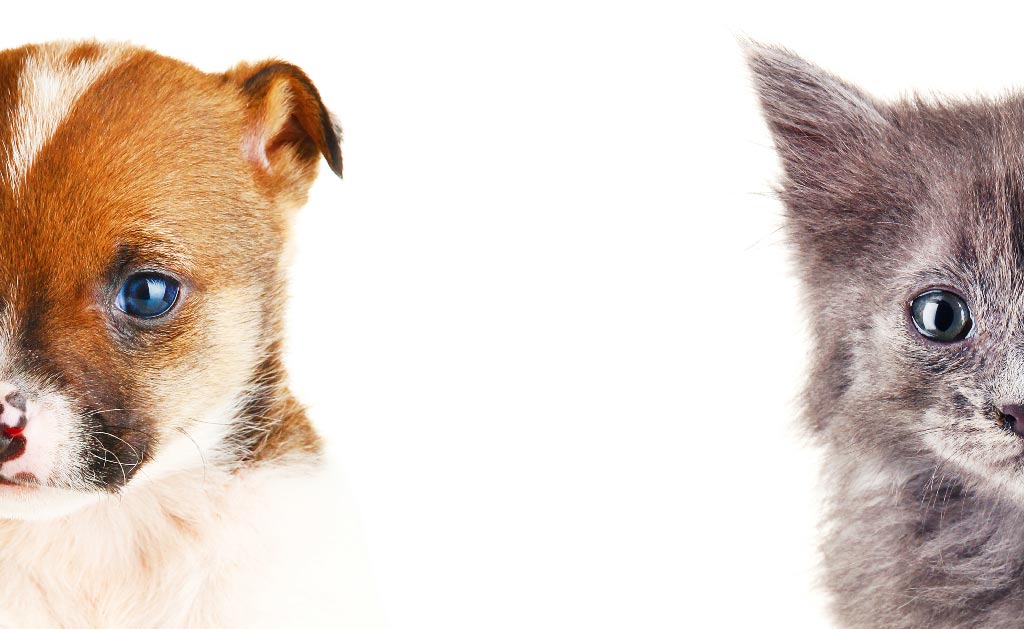 According to Psychology Today, some scientific studies have identified differences between dog people and cat people. Dog lovers tend to be more extroverted and social, while cat owners tend to score higher on intelligence tests and demonstrate more curiosity (which may or may not spell doom for their cats).
According to Psychology Today, some scientific studies have identified differences between dog people and cat people. Dog lovers tend to be more extroverted and social, while cat owners tend to score higher on intelligence tests and demonstrate more curiosity (which may or may not spell doom for their cats).
But don’t buy into this as fate; some quiet, introverted folks just want to cuddle with a pup, while some librarians actively loathe felines.
Minding Your Paws and Qs
There are few moments as heartwarming as watching your pupper play at the dog park: that fuzzy feeling of contentment as she aggressively speeds across the grass to snatch the ball from the jaws of another pup; the belly laughs as she runs with the pack while barking deliriously in the faces of her canine comrades.
Caught in the moment, you might not notice the side-eye you’re getting from other dog owners as your pet owns the yard. You may think your dog’s behavior is cute; others may think you have a dog park bully.
Just as we’re responsible for our own behavior around others, so do we need to mind the manners of our furry friends. This includes “petiquette” with other animals, as well as humans. Paying attention to the responses of other animals and their people isn’t simply the hallmark of a thoughtful pet owner. It also helps minimize dangerous interactions.
This isn’t just true at the park or the vet. For example, pets can cause tension between neighbors. Ms. Next Door might not appreciate the “fertilizer” your dog leaves on her lawn; Mr. Across The Street may hate the mournful werewolf howling if you leave Fido outside all night. Promptly dispose of any waste, and do not leave your dog outdoors overnight. Additionally, if you enjoy sitting on the front porch with your pooch – or anywhere without a fence – keep him on a leash; not all of your neighbors enjoy being pounced on by an enthusiastic canine. In a phrase: Don’t be the Bumpuses, the family with the rowdy hounds in A Christmas Story.
And cat owners, don’t think you’re off the hook. Your neighbor’s garden is not Garfield’s litterbox.
Controlling your animal’s behavior seems like it would be easier within the confines of your own home, but this comes with its own challenges. Felines have an unerring sense of when a human just isn’t that into them and tend to make a beeline straight for those folks. While we may find this behavior amusing, some people are, at least, genuinely uncomfortable and, at most, severely allergic to cats.
Be a considerate host and minimize interaction between your kitties and people who aren’t fans. The same goes for dogs: have a room or a kennel ready if your pup needs to be separated from your peeps. Above all, always make sure guests know about your pet environment ahead of time.






















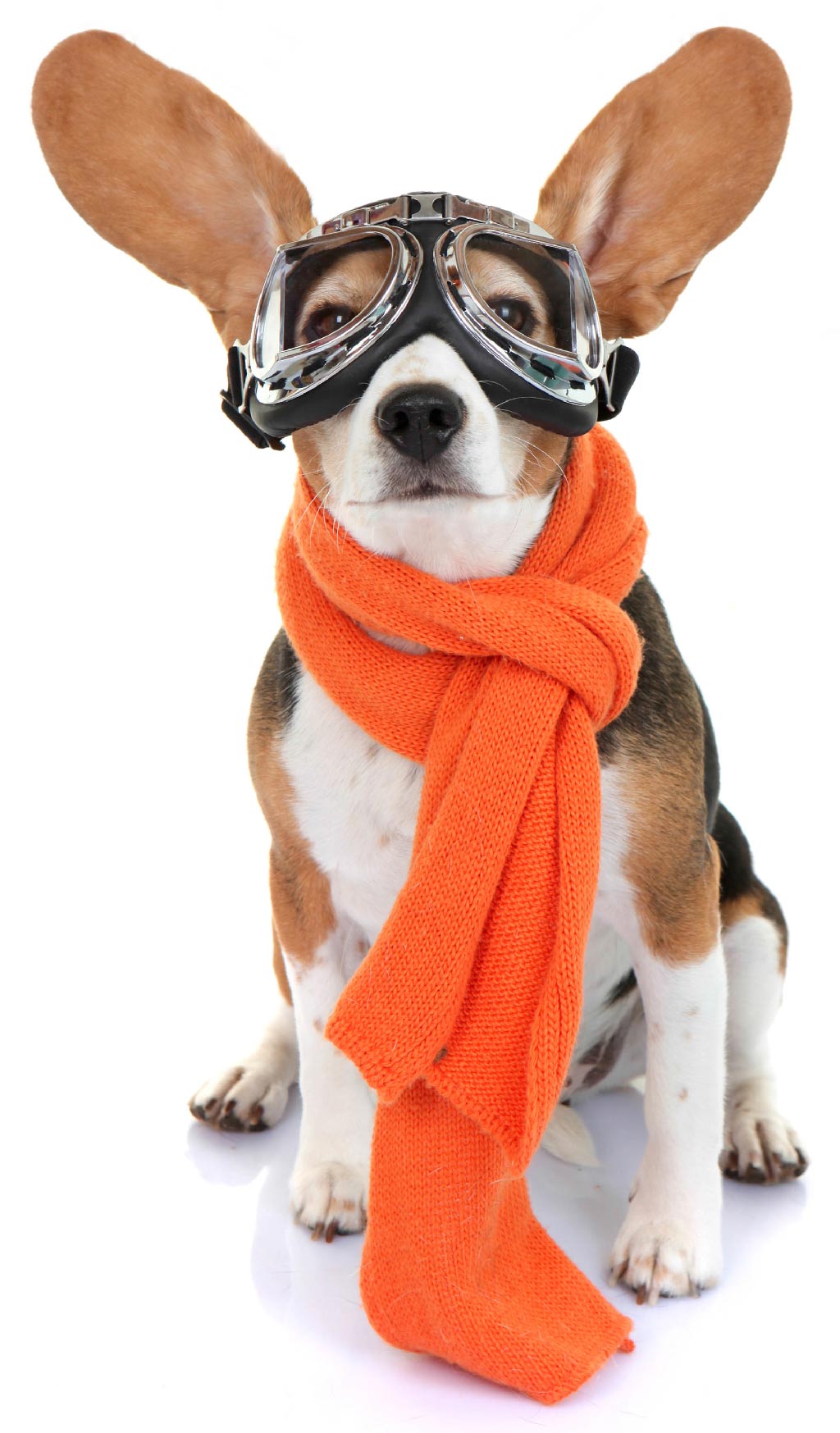 The Purrfect Vacation
The Purrfect Vacation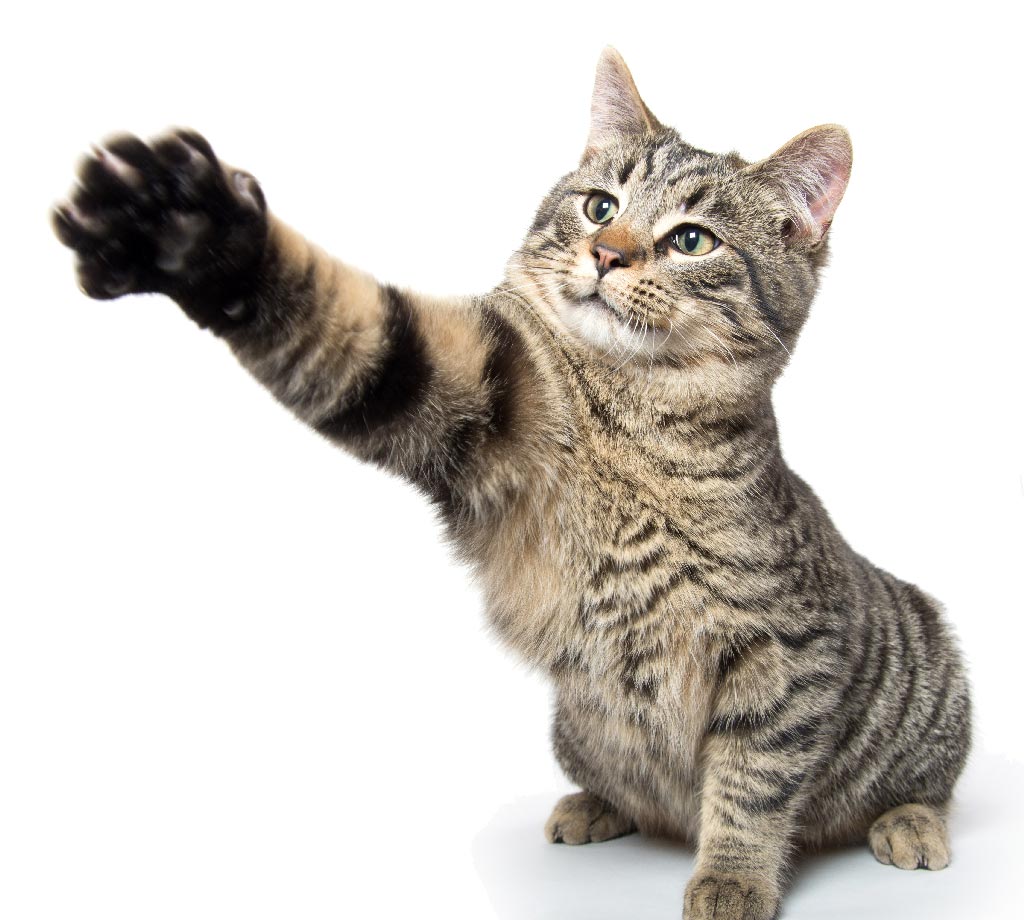 Pet Proofing
Pet Proofing